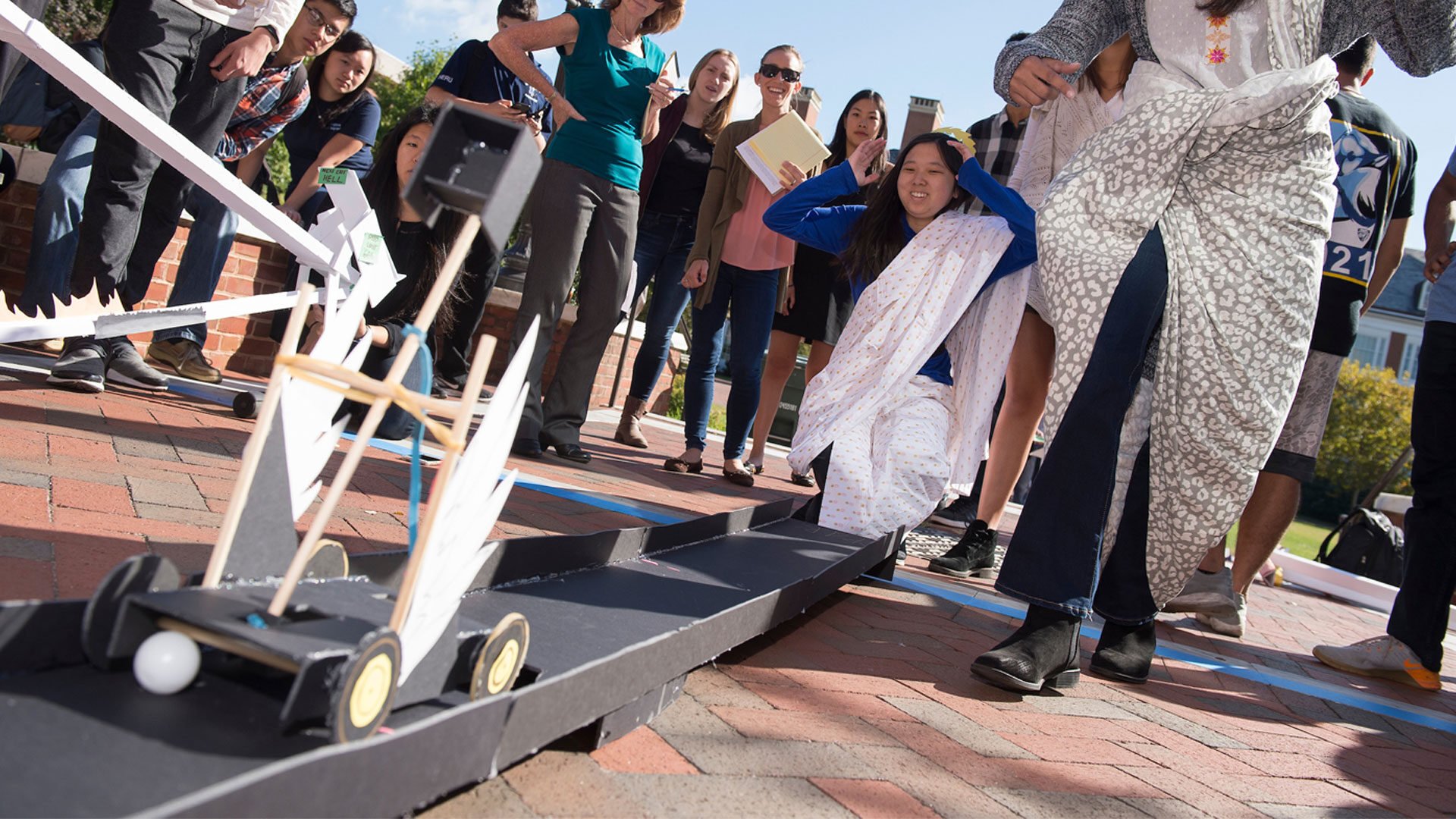Inaugural Professorial Lecture: Sri Sarma
The Don P. Giddens Inaugural Professorial Lecture series honors newly promoted full professors and teaching professors.
Glass Pavilion, Levering Hall
Please join us in celebrating the Don P. Giddens Inaugural Professorial Lecture recognizing Sri Sarma as a professor in the Department of Biomedical Engineering.
The lecture, “Networks of the Mind: Measuring Health from Global Order to Local Instability,” will be held at 4:30 p.m. on Tuesday, Sept. 30, in the Glass Pavilion at Levering Hall. Please register, as space is limited.
A livestream will be available on the Johns Hopkins Engineering YouTube channel for those who cannot attend in person.
Sri Sarma is a professor of biomedical engineering and vice dean for graduate education at Johns Hopkins University. Her research leverages control theory to uncover how the brain governs complex behaviors such as motor control and decision making, while also advancing understanding of neurological disorders including epilepsy and chronic pain. Beyond academia, she is cofounder of Neurologic Solutions, a neurotechnology start-up, and serves as principal investigator of NeuroTech Harbor, an NIH-funded Blueprint hub.
Description of “Networks of the Mind: Measuring Health from Global Order to Local Instability”:
How do we measure the health of the brain? Unlike blood pressure or cholesterol, there is no single number that captures brain function. The Sarma Lab is developing the Brain Entropy Index (BEI), a new measure that integrates thermodynamics, statistical modeling, and brain imaging to provide a global indicator of brain health. Using EEG, BEI can reliably separate healthy from diseased brains, offering promise as a universal screening tool. But while global network properties reveal overall health, unique local network properties are what define specific disorders. To capture these, the lab created EpiScalp, which models local brain networks to distinguish epilepsy from seizure-mimicking disorders and from healthy brains. Together, these approaches show how global measures can screen for health versus disease, while local measures serve as biomarkers for specific conditions. More broadly, they illustrate how concepts from control theory, physics, and data science can converge to open new frontiers in neuroscience and medicine—enabled by the uniquely collaborative environment at Johns Hopkins.
